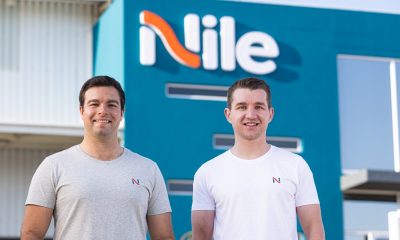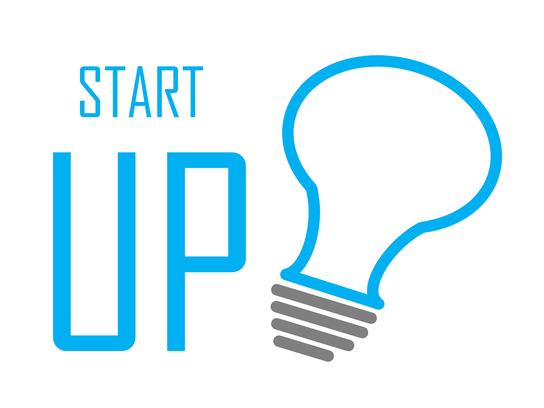Technology
10 Best Places to Create a Startup Hub in Nigeria

Recently, I wrote about the most critical factors to consider before creating a startup hub in Nigeria. While any state government can actually make this happen, there are particularly some cities that could get it done faster within just a couple of years.
As Paul Graham, the most respected authority on startups put it: For the price of a football stadium, any town that was decent to live in could make itself one of the biggest startup hubs in the world. What’s more, it wouldn’t take very long. You could probably do it in five years during the term of one mayor (or governor).
Granted, most of the state governors claim to have ICT development plans but have hardly harnessed the economic benefits and potentials of a technology & business startup culture in certain cities.
With so much attention on diversifying the Nigerian economy from over-dependence on oil, to tourism, agriculture, and other sectors, what better time to focus on developing the “knowledge economy” driven by massive ICT infrastructure development in any given state or city.
According to a post over at LaptopJudge, a “Knowledge Economy” will naturally give birth to a new generation of technology-savvy entrepreneurs with a rare business culture – one that can support the vision of creating a startup hub in any city in the world.
Today, Internet and technology companies such as Google, Yahoo and Microsoft have become some of the largest employers of labour in the United States and have generated huge streams of revenue that has successfully driven the U.S economy.
Can this success be replicated in Nigeria?
Yes. But it would require a lot of effort and investment from the government and the private sector. Interestingly, there are a few states or cities in Nigeria I’ve identified where a “technology” startup hub could easily be created.
I’ll be profiling and analyzing five of these states and cities in this post, so in no particular order, here are 5 best places to grow a startup industry in Nigeria.
1. Ogun State
Located in south-western Nigeria, Ogun State has a 2005 population estimate of over 4 million inhabitants, with Abeokuta as the capital and largest city.
The state has the largest number of universities in Nigeria such as Crescent University, Abeokuta, Covenant University, Ota, Babcock University, Ilisan Remo, Bell University of Technology, Ota, and polytechnics such as Abraham Adesanya ICT Polytechnic, Ijebu Igbo, Gateway ICT Polytechnic in Saapade and Igbesa.
With heavy investment in education, ICT development and infrastructure and an on-going solar power e-learning project, Ogun state looks like a great place for startups to thrive. It had a GDP of $10.47 billion in 2007 and per capita income of $2,740.
Besides, the cost of living and doing business in Ogun state is relatively low compared to Lagos state. For instance, you could get an affordable flat (for office space) in towns such as Mowe-Ofada, Ota or even Abeokuta.
Personally, I think that Ogun state is one of the best places to create a startup hub in Nigeria as it is gradually developing and investing in – infrastructure, ICT and education – some of the key factors needed to create a startup chain reaction.
2. Enugu State
With a population estimate of about 5.6 million people (2005), Enugu state is home to Nigeria’s first indigenous university, University of Nigeria Nsukka (UNN).
An inland state in south-eastern Nigeria, Enugu also hosts the Enugu State University of Science & Technology (ESUT), Institute of Management and Technology (IMT), Enugu State College of Education Technical, Caritas University, Amorji-Nike, Renaissance University, Ugbawka, Our Saviour’s Institute of Science and Technology amongst other learning institutions.
Enugu had a coal industry that use to be one of the biggest employers of labour. In fact, coal was first discovered in the Udi Ridge in the 1900s, led by a British mining engineer named Albert Ernest Kitson, after which Frederick Lugard took keen interest in the discovery and by 1914, the first shipment of coal was made to Britain. Little wonder, Enugu is described as the “Coal City”.
The energy needs of the state could be made a permanent solution with the development of the coal industry and the reactivation of the Oji River Power Station located in Enugu (which used to supply electricity to all of Eastern Nigeria). Even so much so that the proximity of the Enugu coal mines to the power station is only a driving distance of about 20 minutes.
With recent investments in ICT development, infrastructure and a WiFi Internet access project embarked on by the state government with support from Zinox Technologies, Enugu state could become a great startup hub in the future.
3. Lagos State
As the commercial capital city of Nigeria with a population estimated at 18 million inhabitants and the vision to transform into a mega city by 2015, Lagos state is certainly one of the best places to create a startup hub.
No doubt, Lagos has the people – entrepreneurs, investors, researchers, consultants, technology enthusiasts, etc – who could spark up a chain reaction for technology startups in the next few years. Again, the state’s GDP as of 2007 was $33.68 billion and a per capita income of $3,649 which makes it the largest economy in Nigeria.
The University of Lagos at Akoka, Yaba is well-renowned for research and development in technology and innovation and has produced some of the best talents in Nigeria such as Fola Adeola, Dele Olojede, Richard Mofe Damijo and Matilda Kerry.
Lagos also has a well-renowned Business School (LBS), ranked among the top 55 Business Schools in the world by the Financial Times of London (2009), as well as several other institutions around the metropolis, which naturally makes it a place with a business culture.
Even though Lagos is densely populated, cities and towns such as Lekki and Badagry, surrounded by the Lagos Lagoon, bay and beaches, are gradually experiencing property and infrastructural development with expansion plans for Transport, Airport, Free Trade Zone and Golf course, which could eventually make these cities a great startup hub in the future.
Personally, I’d love to see Internet companies headquartered in the Lekki Pennisula (Lekki Bay Area, as I call it) as well as Badagry, Victoria Island and Ikoyi within the next 10-15 years.
4. Cross River State
The state of Cross River with its capital city, Calabar has been acknowledged as the leading eco-friendly tourism spot in Nigeria. With a 2005 population estimate of over 3 million inhabitants and a 2007 GDP of $9.29 billion and per capita of $3, 150, this coastal state located in southeastern Nigeria is a wonderful place to live and build a startup.
The state is home to the University of Calabar and several other institutions and is gradually transforming itself into a world tourist attraction, especially with landmarks such as the Obudu Ranch Resort, Tinapa Business Resort, Calabar Free Trade Zone and the Calabar Sea and Airports which all present great opportunities for business and trade within the region.
Besides, the Cross River State Information Technology Village in collaboration with Microsoft offers the Microsoft Unlimited Potential Programme for the South-South geo-political zone which is delivering IT training to students and inhabitants to keep pace with the technology in today’s competitive business environment.
Tinapa, the first world-class integrated business and leisure resort in Nigeria, located in Calabar with world class facilities and Free Trade Zone could become one of the biggest technology startup hubs in Africa.
5. Rivers State
Rivers State is the second largest economy in Nigeria after Lagos state with GDP of over $21 billion and per capita of $3,965, according to the 2007 CGIDD figures, particularly due to the fact that it is the chief oil-producing and refining state.
The capital city, Port Harcourt which is the main hub of the oil and gas industry in Nigeria as well as the West African sub-region, has a population estimated at 2.7 million for the Urban Area, while the Greater Port Harcourt Area is estimated at about 3.7 million, according to a 2007 population estimate.
The city is home to the Rivers State University of Science and Technology, University of Port Harcourt, an international airport, two seaports (F.O.T Onne and Port Harcourt Wharf), two stadiums (Sharks Stadium and Liberation Stadium) and two refineries.
However, the activities of several armed militants in recent times have made life and commerce in the once peaceful town a dangerous place to live and operate a business. Again, the city has a very high standard of living that could make it difficult for startups to thrive and survive, especially in their first year.
But startups that decide to move there can take advantage of the oil-rich economy and wealthy individuals who reside there, as this could help create a Venture Capital industry.
Besides, with the development of the Greater Port Harcourt which would provide economic growth poles with strong lateral linkages and exerting a positive impact on the economy and leading to a sustained increase of incomes of the New Town regions, the city could grow to become a great startup hub.
My final thoughts
Creating a startup hub in any of these cities will definitely take some time. It would start with each state government recognising the future economic benefits of creating a startup hub and harnessing its early potentials and development.
However, any individual or group of individuals that could start or build an online venture, create auto title loans, secure funding from investors or sell a percentage stake to a global or local technology company, and move to any of these cities could very well cause a sustainable chain reaction for the development of a startup hub.
By the time more and more startups move into an ideal and decent city or town, it could attract a critical mass of people and investors, thereby creating a Venture Capital industry that could drive any startup hub in Nigeria.
Personally, I would love to wake up one morning in the year 2020, tune to CNBC Africa and listen to the news that a local Internet company has been listed on the New York Stock Exchange (NYSE) and the price of the company’s stock has eventually risen 30% to $467.23 per share.
If you find this post helpful, Read my next article – “how to buy a good laptop stand for desk” I’ll be discussing five more potential startup hubs in a future post.
Technology
Emergent Ventures, Others Invest $2.2m in Potpie

By Dipo Olowookere
About $2.2 million pre-seed round to help engineering teams unify context across their entire stack and make AI agents genuinely useful in complex software environments has been announced by Potpie.
Potpie was established by Aditi Kothari and Dhiren Mathur, who were determined to unify context across the entire engineering stack and enabling spec driven development.
As generative AI adoption accelerates, most tools focus on surface-level code generation while ignoring the deeper problem of context.
Large language models are powerful, but without access to system-level understanding, tooling history, and architectural intent, they struggle in real production environments.
Traditional approaches rely on senior engineers to manually hold this context together, a model that breaks down at scale and fails when AI agents are introduced.
The platform enables teams to automate high-impact and non-trivial use cases across the software development lifecycle, like debugging cross-service failures, maintaining and writing end-to-end tests, blast radius detection and system design.
It is designed for enterprise companies with large and complex codebases, starting at around one million lines of code and scaling to hundreds of millions.
Rather than acting as another coding assistant, Potpie builds a graphical representation of software systems, infers behaviour and patterns across modules, and creates structured artefacts that allow agents to operate consistently and safely.
A statement made available to Business Post on Monday revealed that the funding support came from Emergent Ventures, All In Capital, DeVC and Point One Capital.
The capital will be used to support early enterprise deployments, expand the engineering team, and continue building Potpie’s core context and agent infrastructure, it was disclosed.
“As AI makes code generation easier, the real challenge shifts to reasoning across massive, interconnected systems. Potpie is our answer to that shift, an ontology-first layer that helps enterprises truly understand and manage their software,” Kothari was quoted as saying in the disclosure.
A Managing Partner at Emergent Ventures, Anupam Rastogi, said, “In large enterprises, the real challenge is not generating code, it is understanding the system deeply enough to change it safely.
“Potpie’s ontology-first architecture, combined with rigorous context curation and spec-driven development, creates a structured model of the entire engineering ecosystem. This allows AI agents to reason across services, dependencies, tickets, and production signals with the clarity of a senior engineer. That is what makes Potpie uniquely capable of solving complex RCA, impact analysis, and high-risk feature work even in codebases exceeding 50 million lines.”
Technology
Expert Reveals Top Cyber Threats Organisations Will Encounter in 2026

By Adedapo Adesanya
Organisations in 2026 face a cybersecurity landscape markedly different from previous years, driven by rapid artificial intelligence adoption, entrenched remote work models, and increasingly interconnected digital systems, with experts warning that these shifts have expanded attack surfaces faster than many security teams can effectively monitor.
According to the World Economic Forum’s Global Cybersecurity Outlook 2026, AI-related vulnerabilities now rank among the most urgent concerns, with 87 per cent of cybersecurity professionals worldwide highlighting them as a top risk.
In a note shared with Business Post, Mr Danny Mitchell, Cybersecurity Writer at Heimdal, said artificial intelligence presents a “category shift” in cyber risk.
“Attackers are manipulating the logic systems that increasingly run critical business processes,” he explained, noting that AI models controlling loan decisions or infrastructure have become high-value targets. Machine learning systems can be poisoned with corrupted training data or manipulated through adversarial inputs, often without immediate detection.
Mr Mitchell also warned that AI-powered phishing and fraud are growing more sophisticated. Deepfake technology and advanced language models now produce convincing emails, voice calls and videos that evade traditional detection.
“The sophistication of modern phishing means organisations can no longer rely solely on employee awareness training,” he said, urging multi-channel verification for sensitive transactions.
Supply chain vulnerabilities remain another major threat. Modern software ecosystems rely on numerous vendors and open-source components, each representing a potential entry point.
“Most organisations lack complete visibility into their software supply chain,” Mr Mitchell said, adding that attackers frequently exploit trusted vendors or update mechanisms to bypass perimeter defences.
Meanwhile, unpatched software vulnerabilities continue to expose organisations to risk, as attackers use automated tools to scan for weaknesses within hours of public disclosure. Legacy systems and critical infrastructure are especially difficult to secure.
Ransomware operations have also evolved, with criminals spending weeks inside networks before launching attacks.
“Modern ransomware operations function like businesses,” Mitchell observed, employing double extortion tactics to maximise pressure on victims.
Mr Mitchell concluded that the common thread across 2026 threats is complexity, noting that organisations need to abandon the idea that they can defend against everything equally, as this approach spreads resources too thin and leaves critical assets exposed.
“You cannot protect what you don’t know exists,” he said, urging organisations to prioritise visibility, map dependencies, and focus resources on the most critical assets.
Technology
NCC Begins Review of National Telecommunications Policy After 26 Years

By Adedapo Adesanya
In a consultation paper released to the public, the commission said it is seeking input from stakeholders, including telecom operators, tech companies, legal experts, and the general public, on proposed revisions designed to reposition Nigeria’s telecommunications framework to match current digital demands. Submissions are expected by March 20, 2026.
The NTP 2000 marked a turning point in Nigeria’s telecom landscape. It replaced the 1998 policy, introducing full liberalisation and a unified regulatory framework under the NCC, and paved the way for the licensing of GSM operators such as MTN, Econet (now Airtel), and Globacom in 2001 and 2002.
Prior to the NTP, the sector was dominated by Nigerian Telecommunications Limited (NITEL), a government-owned monopoly plagued by obsolete equipment, low teledensity, and poor service. At the time, Nigeria had fewer than 400,000 telephone lines for the entire country.
However, the NCC noted that just as the 1998 policy was overtaken by global developments, the 2000 framework has become structurally misaligned with today’s telecom reality, which encompasses broadband, 5G networks, satellite internet, artificial intelligence, and a thriving digital economy worth billions of dollars.
“The rapid pace of technological change and emerging digital services necessitate a comprehensive update to ensure the policy continues to support economic growth while protecting critical infrastructure,” the Commission stated.
The review will target multiple chapters of the policy. Key revisions include: Enhancements on online safety, content moderation, digital services regulation, and improved internet exchange protocols; a modern framework for satellite harmonisation, coexistence with terrestrial networks, and clearer spectrum allocation to boost service quality, and policies to address fiscal support, reduce multiple taxation, and lower operational costs for operators.
The NCC is also proposing entirely new sections to the policy to address emerging priorities. Among the key initiatives are clear broadband objectives aimed at achieving 70 per cent national broadband penetration, with a focus on extending connectivity beyond urban centres to reach rural communities.
The review also seeks to formally recognise telecom infrastructure, including fibre optic cables and network masts, as Critical National Infrastructure to prevent vandalism and enhance security.
In addition, the commission is targeting the harmonisation of Right-of-Way charges across federal, state, and local governments, alongside the introduction of a one-stop permitting process for telecom deployment, designed to reduce bureaucratic delays and lower operational costs for operators.
According to the NCC, the review aims to make fast and affordable internet widely accessible. “The old framework was largely voice-centric. Today, data is the currency of the digital economy,” the commission said, highlighting the need to close the urban-rural broadband divide.
The consultation process is intended to gather diverse perspectives to ensure the updated policy reflects current technological trends, market realities, and consumer needs. By doing so, the NCC hopes to maintain the telecommunications sector’s role as a key driver of economic growth and digital inclusion.
-

 Feature/OPED6 years ago
Feature/OPED6 years agoDavos was Different this year
-
Travel/Tourism10 years ago
Lagos Seals Western Lodge Hotel In Ikorodu
-

 Showbiz3 years ago
Showbiz3 years agoEstranged Lover Releases Videos of Empress Njamah Bathing
-

 Banking8 years ago
Banking8 years agoSort Codes of GTBank Branches in Nigeria
-

 Economy3 years ago
Economy3 years agoSubsidy Removal: CNG at N130 Per Litre Cheaper Than Petrol—IPMAN
-

 Banking3 years ago
Banking3 years agoSort Codes of UBA Branches in Nigeria
-

 Banking3 years ago
Banking3 years agoFirst Bank Announces Planned Downtime
-

 Sports3 years ago
Sports3 years agoHighest Paid Nigerian Footballer – How Much Do Nigerian Footballers Earn
















